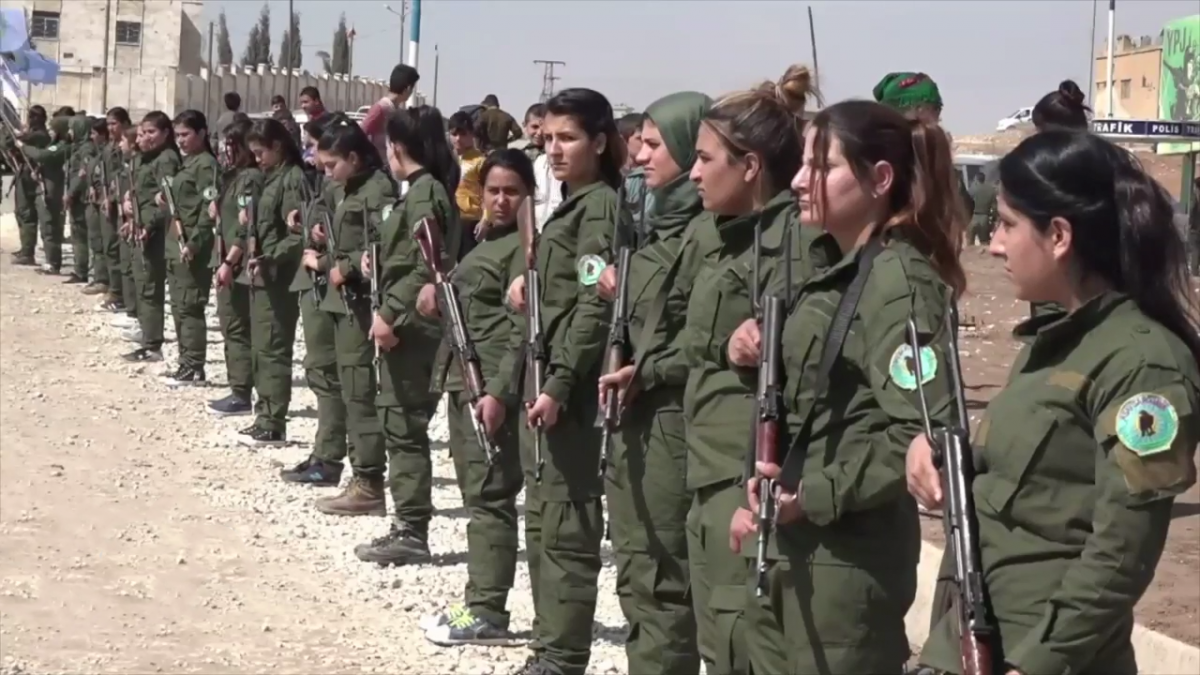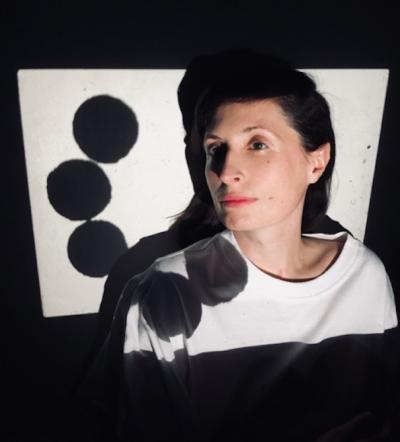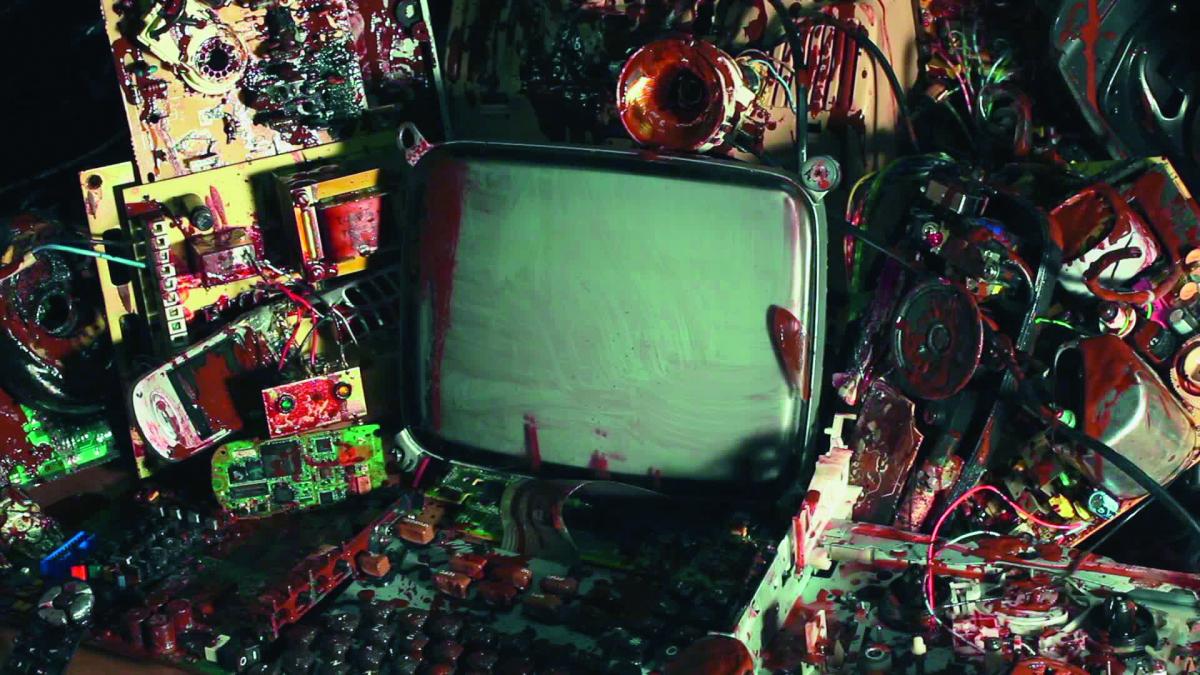
Sampling Stories Vol. 14: Olivia Louvel
It was early 2016 when female:pressure launched their #rojava campaign. With a bundle of tracks, a Bandcamp compilation, videos, discussions, and more, the international network of female, transgender, and non-binary artists in the fields of electronic music and digital arts aimed to raise awareness around the resistance movement taking place in the cantons of Rojava in Northern Syria. Here, we meet sound artist Olivia Louvel who has done an audiovisual piece for this project. How does one approach such a project? What role does sampling play? And what kind of ethical questions do arise?
It was especially the participation of women «on all levels of decision making and building a new society from scratch, with built-in social, racial and ethnic justice, religious freedom, ecological principles and gender equality» (vimeo page Olivia Louvel) that motivated Antye Greie-Ripatti aka AGF from female:pressure to curate this project with artists such as Louvel. It was only in March 2016 that the Democratic Federation of Northern Syria (DFNS) had been declared and still today, after the defeat of the Islamic State, Rojava’s status is as a de facto autonomous region. These days, news from the region are hard to find, see here for a short discussion of the actual situation.

Drill Ground Athmosphere
But let us now go back to the end of 2015, when the project was being curated and Olivia Louvel was working on her submission, the audiovisual track «Afraid of Women» (see video below). The French and now Brighton-based artist approached the project by sampling sounds from TV documentaries on the Rojava region and the women fighters.1 The track comes along as a sound collage. We hear stomping boots, shortly after another repeated samples (triggered with Ableton's «Beat Repeat» effect) and shouts. (The voices seem to be shouting «Stop it!» but in fact that's not what they shout. Louvel took that piece of a Kurdish voice exactly because of this similarity.) Then the sound of the fighters arming their weapons establishes rhythmical landmarks and more voices pop up and fade out. All of this lets the listener experience some sort of drill ground atmosphere. Sampled voices are of great importance in Louvel's sound work generally, and especially in this track: «it was about giving those women a voice so I had to use their voices obviously», she reports in the interview.
Closed Doors at BBC Radio 3
Louvel even uses her own voice in the piece (the whispered parts in the first half of the track, used as introduction), a strategy of appropriating the sampled material: «I am making my own object out of all these objects.» Talking about voice, another relative topic comes up: language. When choosing the samples to work with for the sound collage this was a crucial factor: «First there was a necessity to use the voice in English because I wanted people to be able to understand», Louvel explains. She could then only use English or over-voiced quotes. In the end (2:47) a quote turns from English to Kurdish: «finally, I wanted their real language to be in the track.» Interestingly, it was exactly this part that had to be cut when BBC broadcasted the track on «Late Junction». Louvel remembers how this came about: «I did not have an exact translation of the Kurdish voice on the track's last minute. BBC have some regulations especially when it is a language that sounds Arabic and so they could not play the last part. They were probably worried it might contain a message of hate or something like that.» This is an example where the sampling of certain material directly influenced the track's further distribution.
«The Purpose Was not to Make some New Music»
A project like that could raise a bundle of ethical questions: why is a sound artist who has never been to Rojava, and has no closer connection to the context, sampling such material? How does the artist legitimate this act? Is the track glorifying fighting women? Is such a project in the end even glorifying war? «I did not censor myself», Louvel remembers the production process: «I just basically went onto the Internet and took the material that I thought was right for the project. I just took it, grabbed it, and then made it mine.» All these questions above that a critical listener or researcher could come up with did appear only later: «We didn't want to sort of glorify women with weapons and so we were suddenly worried that it was going to be perceived like that.» After discussing these questions and getting positive feedback from project curator AGF and even from a Rojava activist,2 they were finally convinced to publish the track. Louvel is making a point in underlining the original motivation: «At the end there was a purpose. The purpose was not to make some new music, it was to give those women a voice.» The money, generated with this project, was all funded to a London-based association of Rojava women.3 That is especially important to know when studying the power relations behind this process of sampling. But finally, Louvel emphasizes the importance of the moment when creating such a project:
What is my legitimacy in appropriating those documentaries, working from found footage to make an audiovisual about these women in Rojava? I had a similar approach for the project «o, music for haiku» using haiku by Japanese poet Basho even though I have never been to Japan... and I certainly do not speak Japanese. I used the material as a texture, composing with it. It is not my primary concern, if people think I should not be doing that. My approach is spontaneous. I am driven to talk about it so I just do it. I start on impulse... and then I question it afterwards.
#Rojava – the Compilation
- 1. In the credits of both video and track Olivia Louvel acknowledges the following sources: BBC News, Günther Steinmeier, Russia Inside, PBS NewsHour.
- 2. The activist with the pseudonyme Hevî («Hope» in Kurdish) took part on a panel about the project at CTM Festival in Berlin 2016.
- 3. Browsing the web there is only little information on the purpose of the funding. On the video’s vimeo page («Afraid of Women») and the female:pressure site a project of Rojava women is mentioned that aims to build a women’s village on location called «The Village Project»
The interview was conducted via Skype, 15.11.2017. This article has been published in the context of the PhD research on sampling in experimental electronic music by Hannes Liechti. For more info click here.
Biography
Published on February 10, 2018
Last updated on April 29, 2024
Topics
What happens when U.S.-blogger collects african music and offers it for free? What is the difference between «textually signaled» and «textually unsignaled»?
Musicians need to pay rent and taxes. But their relationship to money is highly ambigious.
Sampling is political: about the use of chicken clucks or bomb sounds in current music.
How does Syrian death metal sound in the midst of the civil war? Where is the border between political aesthetization and inappropriate exploitation of death?
